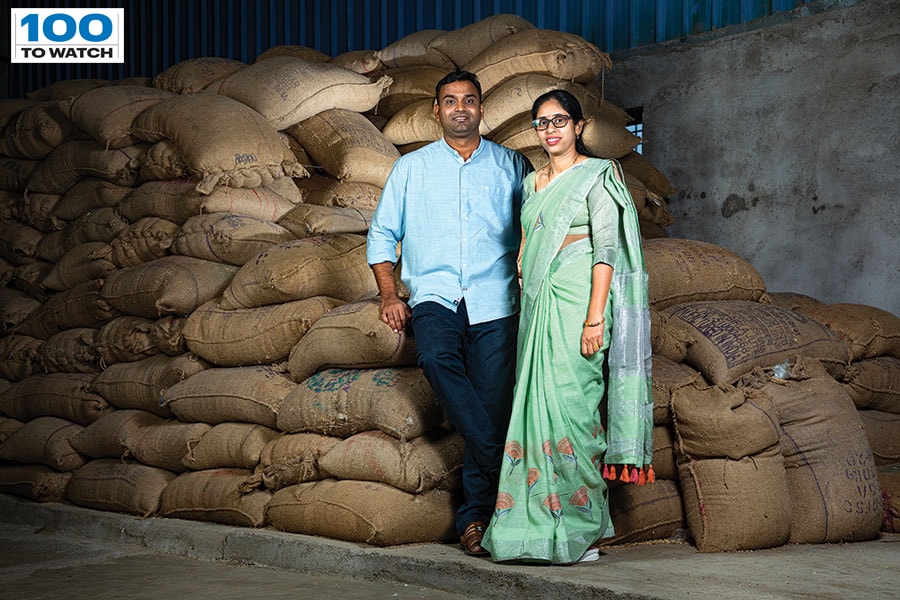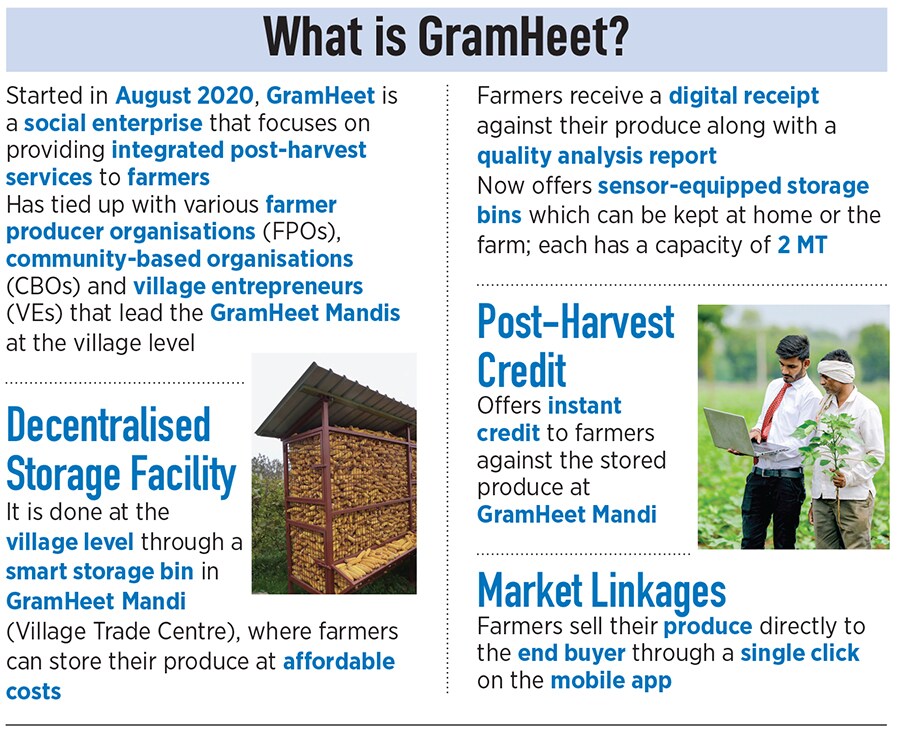
Can agritech startup GramHeet uplift the lives of distressed farmers?
The husband-wife duo of Pankaj Mahalle and Shweta Thakare is using a digital platform to provide integrated post-harvest services to small farmers
 Pankaj Mahalle, cofounder and CEO GramHeet and Shweta Thakare cofounder and COO GramHeet
Image: Saurabhi Adbe for Forbes India
Pankaj Mahalle, cofounder and CEO GramHeet and Shweta Thakare cofounder and COO GramHeet
Image: Saurabhi Adbe for Forbes India
You can sense the pain in his voice. “I don’t remember how many Diwalis my parents couldn’t keep their promise,” recalls Pankaj Mahalle. “They always tried, but couldn’t gift me new clothes,” underlines the first graduate from his family and village, Warud, in the Yavatmal district of Maharashtra, which is globally infamous for reporting the highest number of farmer suicides in India. Mahalle’s father owned four acres of agricultural land, cultivated cotton and had a decent output most of the time. The problem, though, started after the harvest. “The moneylender would come to the house and snatch away most of the produce,” recalls Mahalle.
The absence of a storage facility in the village meant that produce had to be disposed of as soon as possible. And the rates on offer were always outrageously low compared to the market rates. “The lowest rate was the prevailing rate for the farmers,” rues Mahalle, whose family could never come out of the vicious debt cycle. For the next cycle of cultivation, one needed money, and local lenders were always preying around, mercilessly fleecing the hapless farmers. “Imagine, all his life, my father produced cotton, but still couldn’t buy me a cotton shirt,” he says in a choked voice. His plight, he continues with his strained tone, and that of millions of farmers shows the failure of the socio-economic system of the country. “Farmers produce grain, and yet die of starvation,” he rues.
 Shweta Thakare has a similar harrowing tale to narrate. Born in Yavatmal district, her parents, too, owned a small piece of land. Failure to pay the debts forced the family to migrate to the city. The owner now became a labourer. “I have lived with their pain,” says Thakare, who graduated in electronics and telecommunication from Amravati University, and completed her Masters in development studies from IIT Hyderabad. Though she had the opportunity to lead a cushy corporate life, Thakare was haunted by her painful past. “I wanted to work for the farmers and do my bit to improve their lives,” she says.
Shweta Thakare has a similar harrowing tale to narrate. Born in Yavatmal district, her parents, too, owned a small piece of land. Failure to pay the debts forced the family to migrate to the city. The owner now became a labourer. “I have lived with their pain,” says Thakare, who graduated in electronics and telecommunication from Amravati University, and completed her Masters in development studies from IIT Hyderabad. Though she had the opportunity to lead a cushy corporate life, Thakare was haunted by her painful past. “I wanted to work for the farmers and do my bit to improve their lives,” she says.
Meanwhile, back in 2009, Mahalle too was decided about championing the cause of the farmers. He founded ‘Kastkar’, a social organisation that mobilised volunteers, worked closely with government departments, sensitised farmers about government-run schemes and ran a mobile-based helpline for farmers in Yavatmal district. A year later, in 2010, Thakare joined Kastkar, and the duo continued the work till 2013. After four years, Mahalle figured out that he needed more academic heft to make a deeper impact. He joined Tata Institute of Social Sciences and did his master’s degree in livelihood and social entrepreneurship in 2015. Next he joined Tata Steel Rural Development Society in Jamshedpur, married Thakare and spent the next three years working closely with the tribals.
In 2018, came the pivotal moment. Mahalle and Thakare decided to go back to their village. “Both of us had led a restless life for three years,” he recalls. The inability to do something substantial for farmers haunted the couple. For two years, the duo kept experimenting with various social enterprise models. A few worked, some failed, and the ones that clicked couldn’t have mass impact. During the same period, Mahalle also got to see different shades of ‘impact investors’ and investing. Naturally, many liked the idea, but were not impressed with the ‘returns’.
(This story appears in the 30 November, -0001 issue of Forbes India. To visit our Archives, click here.)










